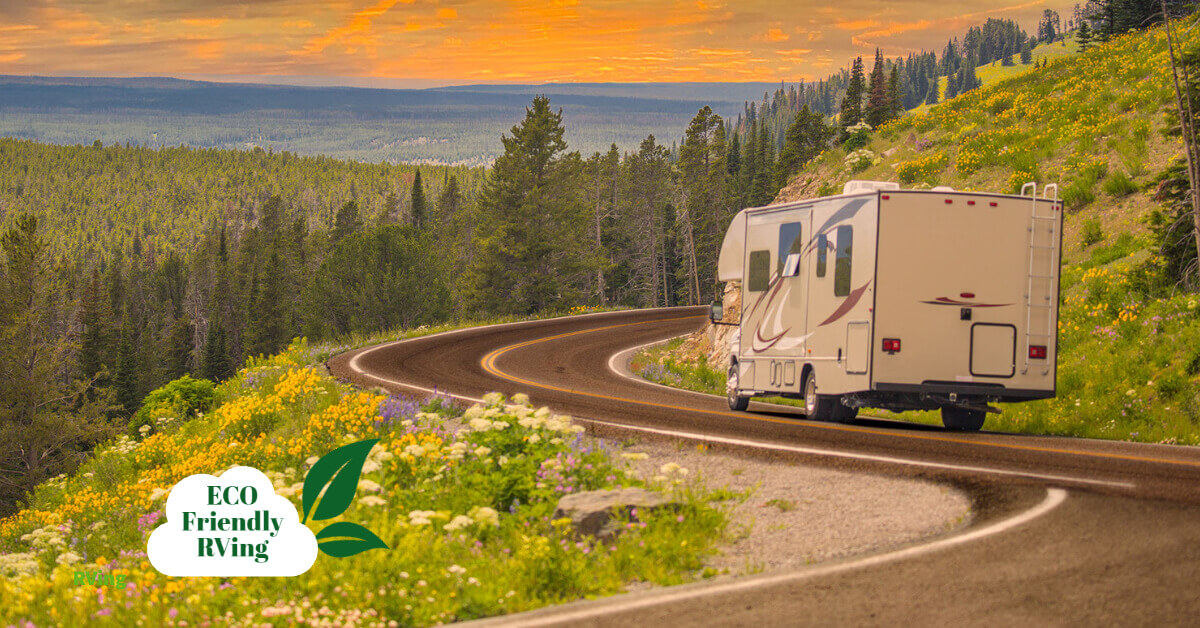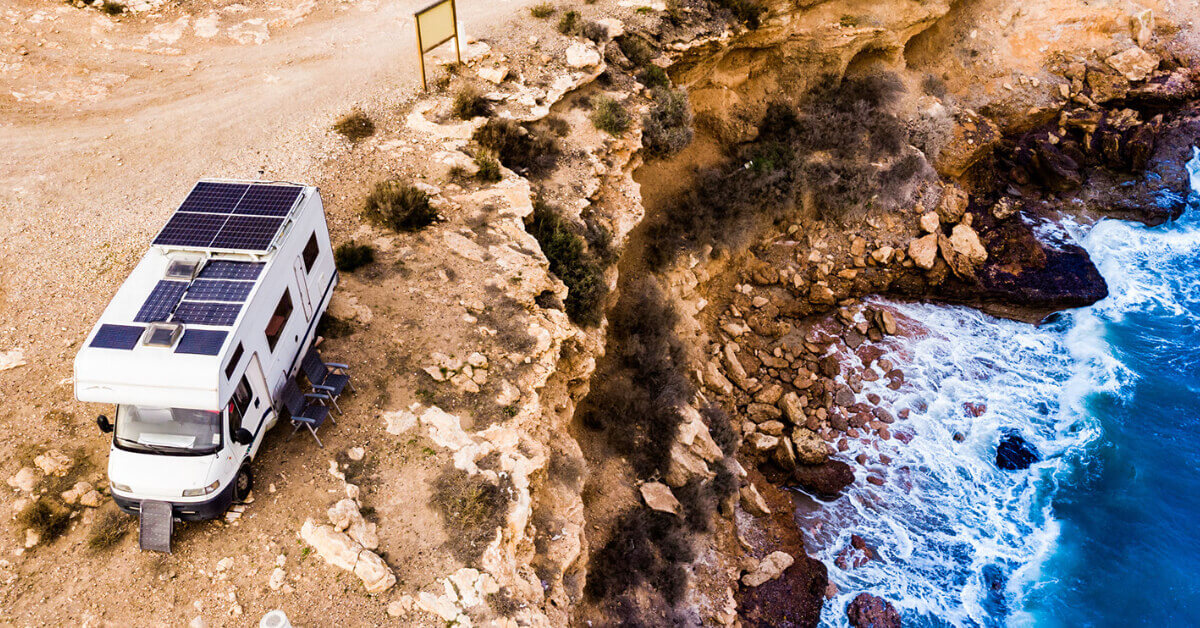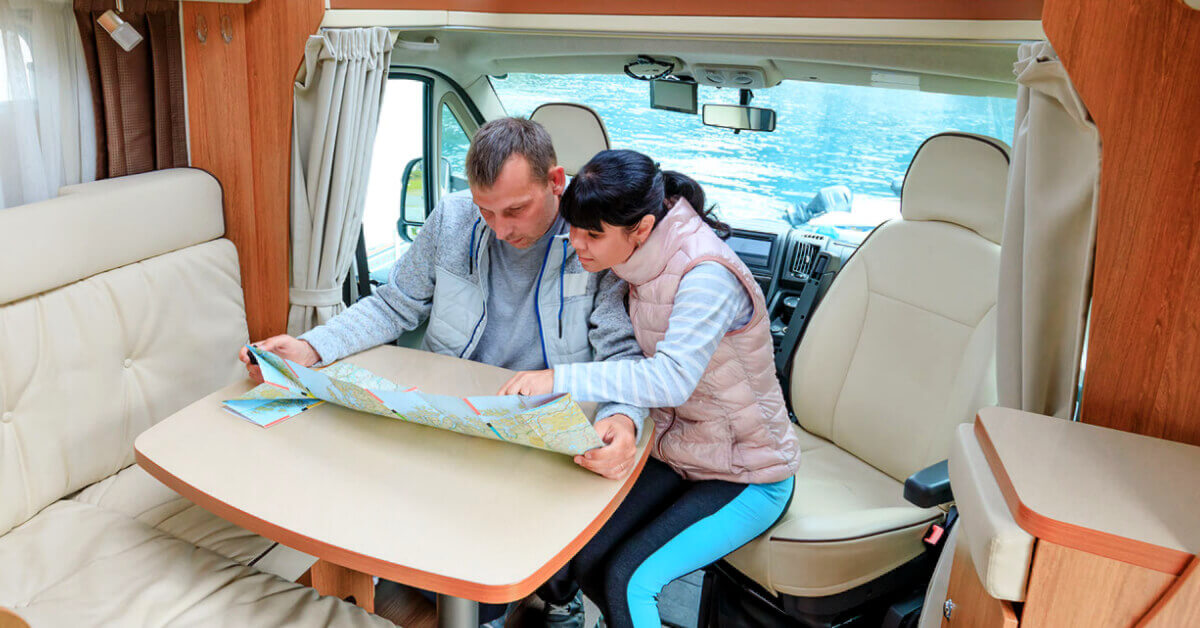- Home Page
- More RVing Tips & Tricks
- Eco Friendly Rving
Eco Friendly RVing
Tips for Reducing Your Carbon Footprint on the Road
These Eco Friendly tips will help you reduce your carbon footprint while RVing
Why Eco Friendly RVing Matters
The Environmental Impact of RV Travel
Recreational vehicles (RVs) are a very popular way to travel and explore the great outdoors. However, they can have a significant environmental impact. The two main concerns are climate change and air pollution and conservation of natural resources. In this article we will give you tips on eco friendly RVing so you can reduce your carbon footprint while RVing.
Climate Change and Air Pollution
RVs, like other vehicles, emit greenhouse gases that contribute to climate change. Additionally, they produce air pollutants that can negatively impact air quality, especially in popular RV destinations.
Conservation of Natural Resources
RVing often involves driving long distances and consuming significant amounts of fuel, which can deplete non-renewable resources. Water and energy consumption are also concerns when living in an RV.
Choosing the Right RV for Eco-Friendly Travel
RV Size and Fuel Efficiency
Good Sam members enjoy instant discounts on fuel. Join Today!
Selecting an appropriately sized RV is crucial for eco-friendly travel. Smaller, lighter RVs typically consume less fuel, which can reduce your carbon footprint. Make sure to consider your needs and the number of travelers to find the right balance between comfort and efficiency.
Solar-Powered RVs
Solar panels can be an excellent addition to any RV, as they harness the sun's energy to power onboard appliances and devices. This can reduce your reliance on non-renewable resources and minimize your carbon emissions.
Electric RVs
As electric vehicle technology continues to advance, electric RVs are becoming more accessible. They produce zero emissions during operation, making them an environmentally friendly choice for RV enthusiasts.
Smart Travel Planning
Efficient Route Planning
Planning your trip in advance can help reduce fuel consumption and emissions. Optimize your route to minimize driving distances and avoid congested areas. Consider using GPS and route planning tools to make the process easier.
Minimizing Idling Time
Excessive idling wastes fuel and contributes to air pollution. When parked or waiting in your RV, turn off the engine to conserve fuel and reduce emissions.
Proper Vehicle Maintenance
Regularly maintaining your RV can improve fuel efficiency and reduce emissions. Check tire pressure, change air filters, and schedule regular engine tune-ups to keep your RV running smoothly and efficiently.
Sustainable Living on the Road
Reducing Waste and Recycling
Minimize waste by using reusable products, such as water bottles and grocery bags. When disposing of waste, recycle whenever possible and avoid littering in natural areas.
Conserving Water and Energy
Practice water conservation techniques while on the road, such as taking shorter showers, repairing leaks, and using a broom instead of a hose to clean your RV. Additionally, conserve energy by turning off lights and appliances when not in use and by utilizing energy-efficient devices.
Supporting Local Economies
By shopping at local businesses and farmers' markets, you can support the communities you visit while reducing the carbon footprint of your purchases. Locally sourced products typically have a smaller environmental impact due to reduced transportation emissions.
Conclusion
Eco-friendly RVing is an achievable goal for anyone looking to reduce their carbon footprint while enjoying the freedom of the open road. By choosing the right RV, planning smart routes, maintaining your vehicle, and adopting sustainable practices, you can minimize your environmental impact and travel with a clear conscience.
Now that you have reviewed these eco friendly tips, you can go out there and start your eco friendly RVing adventures, Happy RVing.
Frequently Asked Questions
How can I improve the fuel efficiency of my RV?
How can I improve the fuel efficiency of my RV?
Regular maintenance, proper tire pressure, and minimizing idling can help improve fuel efficiency. Additionally, consider choosing a smaller, lighter RV or an electric model to further reduce fuel consumption.
Are solar panels worth the investment for my RV?
Are solar panels worth the investment for my RV?
Solar panels can be a valuable addition to an RV, as they can help reduce reliance on non-renewable energy sources and lower carbon emissions. However, the initial investment and installation costs should be weighed against potential energy savings.
What are some ways to conserve water while RVing?
What are some ways to conserve water while RVing?
To conserve water, take shorter showers, fix any leaks, use a broom instead of a hose for cleaning, and consider using a water-saving showerhead or faucet.
How can I support local economies while traveling in my RV?
How can I support local economies while traveling in my RV?
Shop at local businesses, farmers' markets, and craft fairs to support the communities you visit. This benefits local economies and reduces the carbon footprint of your purchases.
What eco-friendly RV accessories can I use to reduce my carbon footprint?
What eco-friendly RV accessories can I use to reduce my carbon footprint?
Consider investing in energy-efficient appliances, LED lighting, solar panels, reusable products, and a water-saving showerhead or faucet to make your RV more environmentally friendly.






Comments
Do you have a comment on this topic? You can leave your comment in the box below.